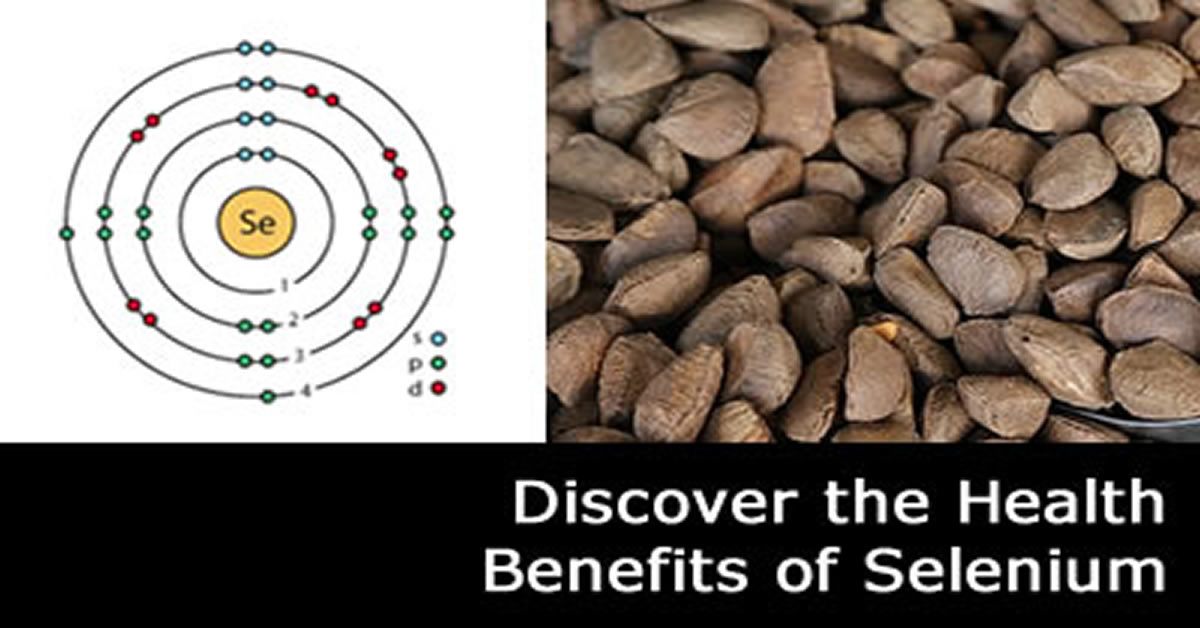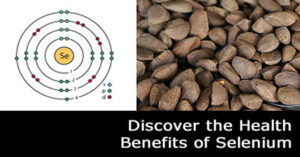Selenium: Understanding its Immune-Boosting Properties, Effectiveness, and Safety
Introduction: Selenium is a trace mineral that plays a crucial role in human health, including its potential immune-boosting properties. In this comprehensive article, we will delve into the world of selenium, exploring its benefits, citing peer-reviewed medical literature, discussing its history, effectiveness, and safety. Additionally, we will provide insights into how to prepare and consume selenium-rich foods for optimal health.
The History of Selenium: To understand the significance of selenium in health, it’s essential to explore its historical context. Selenium was discovered in 1817 by the Swedish chemist Jöns Jacob Berzelius. Initially, it was considered a toxic element due to its adverse effects when consumed in excess. However, further research revealed its essential role in human nutrition.
- Antioxidant Properties: Selenium is a potent antioxidant, which means it helps protect the body from oxidative damage caused by free radicals. Oxidative stress is linked to various chronic diseases, including cancer and heart disease[i].
- Immune System Support: Selenium is known for its role in supporting the immune system. It enhances the production of white blood cells and antibodies, which are crucial for immune response[ii].
- Thyroid Health: Selenium is essential for the proper functioning of the thyroid gland. It helps convert inactive thyroid hormone (T4) into its active form (T3), regulating metabolism and energy production[iii].
- Heart Health: Selenium may contribute to heart health by reducing inflammation and preventing the oxidation of LDL cholesterol, which can lead to atherosclerosis[iv].
Effectiveness of Selenium Supplementation: While selenium is essential for health, it’s important to note that excessive supplementation can be harmful. The recommended daily allowance (RDA) for selenium for adults is around 55 micrograms per day. In most cases, obtaining selenium from a balanced diet is sufficient to meet these requirements.
Selenium supplementation is generally recommended for individuals with selenium deficiency, which is rare in well-nourished populations. However, excessive selenium intake can lead to selenosis, a condition characterized by symptoms such as nausea, diarrhea, hair loss, and even neurological abnormalities.
The effectiveness of selenium supplementation should be assessed on an individual basis and under the guidance of a healthcare professional. It is not a one-size-fits-all approach.
Safety Considerations: Ensuring the safety of any dietary component, including selenium, is paramount. Here are some safety considerations regarding selenium consumption:
- Moderation: As mentioned earlier, excessive selenium intake can be harmful. It’s crucial to stay within the recommended daily allowance (RDA) to avoid adverse effects.
- Natural Food Sources: The best way to obtain selenium is through a balanced diet. Selenium-rich foods include Brazil nuts, seafood (particularly tuna and sardines), poultry, eggs, and whole grains.
- Supplementation: Selenium supplementation should only be considered under the guidance of a healthcare professional and when a deficiency is confirmed through testing.
- Interaction with Medications: Selenium supplements may interact with certain medications, such as anticoagulants, and should be used cautiously in such cases.
How to Prepare and Consume Selenium-Rich Foods: Incorporating selenium-rich foods into your diet is an excellent way to reap the benefits of this essential mineral. Here are some tips on how to prepare and consume these foods:
- Brazil Nuts: Brazil nuts are among the richest sources of selenium. A single Brazil nut can provide your daily selenium requirement. Enjoy them as a snack or incorporate them into your favorite recipes.
- Seafood: Fish like tuna and sardines are rich in selenium. Grilling, baking, or steaming seafood can help retain its selenium content while keeping your meals healthy.
- Poultry: Chicken and turkey are good sources of selenium. Opt for lean cuts and prepare them in various ways, such as roasting, grilling, or stir-frying.
- Eggs: Eggs are a versatile source of selenium. Include them in your breakfast or use them as an ingredient in salads, sandwiches, or baked goods.
- Whole Grains: Whole grains like brown rice and whole wheat bread contain selenium. Use them as a base for your meals to increase your selenium intake.
- Balanced Diet: Aim for a balanced diet that includes a variety of selenium-rich foods to ensure you get a well-rounded nutritional profile.
Conclusion: Selenium is a trace mineral with a rich history in human nutrition. It offers numerous health benefits, including antioxidant properties, immune system support, and potential cancer prevention. However, it’s essential to consume selenium in moderation and preferably through natural food sources.
When considering selenium supplementation, consult with a healthcare professional to determine your specific needs. By understanding the history, benefits, and safety considerations of selenium, you can make informed choices to promote your overall health and well-being.
[i] https://ods.od.nih.gov/factsheets/Selenium-HealthProfessional/
[ii] https://www.naturalnews.com/2020-04-08-boost-immune-system-selenium-vitamin-d.html
[iii] Wang F, Li C, Li S, Cui L, Zhao J, Liao L. Selenium and thyroid diseases. Front Endocrinol (Lausanne). 2023 Mar 24;14:1133000. doi: 10.3389/fendo.2023.1133000. PMID: 37033262; PMCID: PMC10080082.
[iv] Flores-Mateo G, Navas-Acien A, Pastor-Barriuso R, Guallar E. Selenium and coronary heart disease: a meta-analysis. Am J Clin Nutr. 2006 Oct;84(4):762-73. doi: 10.1093/ajcn/84.4.762. PMID: 17023702; PMCID: PMC1829306.


